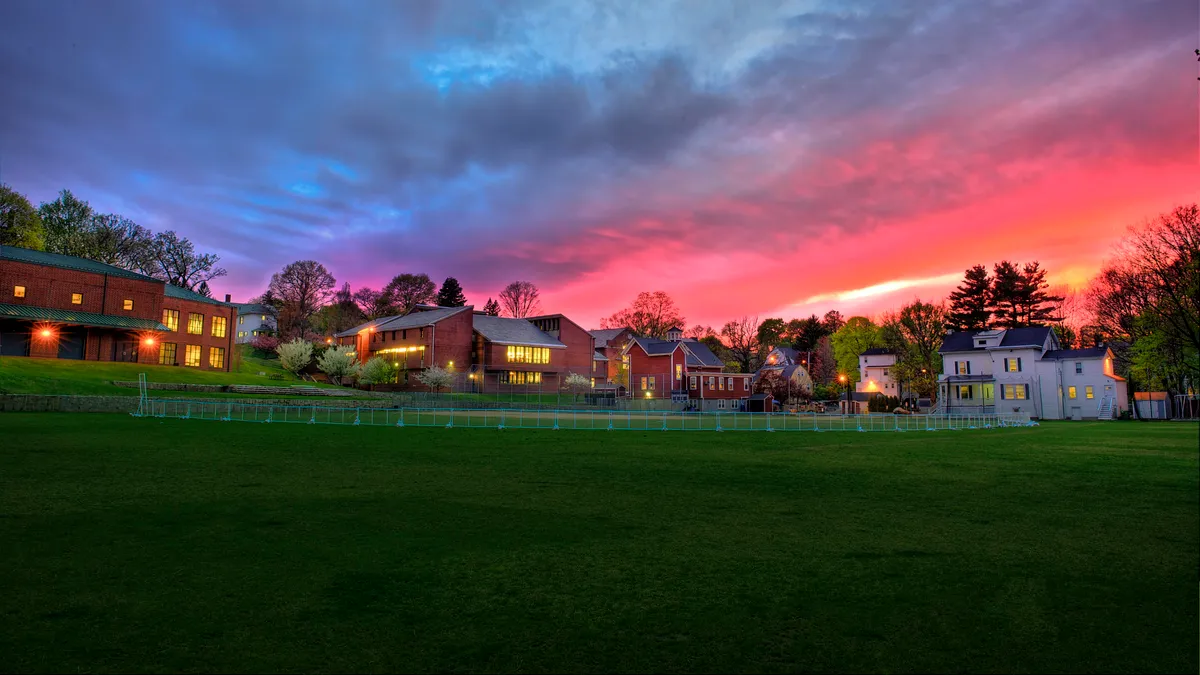Michael Alexander is the president of Lasell University, in Massachusetts.
Faculty, staff, students, administrators, alumni, donors and neighbors have made incredible adjustments on the fly. They have pulled together to ensure that students can successfully complete their semesters, that communities' health and safety are protected, and that their institutions can continue to operate under the most unusual and difficult conditions.
It is a wonderful testament to the creativity and resolve of people to rise to the occasion and work in concert in the face of a crisis. College and university presidents do not find this reaction surprising, but they nevertheless find it affirming and even heartwarming.
However, a bigger challenge lies just ahead. Will residential colleges be able to open their campuses in the fall? Even if they can, will students show up in anything close to the regular numbers?
Students and their parents may fear entering the close quarters of residence halls so soon after a period of national isolation. Or they may not heed warnings of a second wave of infections. Repopulating residence halls and classrooms, and then being required to evacuate again, is a horrifying prospect.
Families whose breadwinners lost their jobs, or had their income diminished and their savings ravished, may simply not be able to afford tuition and fees, even at many public institutions. The cost of attendance was already the biggest problem throughout higher education, which explains how frequently it is addressed in political campaigns.
It seems logical to assume that many students — both first-time and returning — may decide to sit out a year, wait for the pandemic to resolve, and find a job that will supplement family income at a time when such income is needed more than ever.
How will the majority of institutions operate at this reduced capacity? Even large and state-supported universities will have this problem. The states will not be able to come to the rescue because their own budgets will be in disarray, with spiraling deficits. The federal government may provide some more relief, but their focus will rightfully be on supporting people in need directly. The few wealthy institutions, with huge endowments and tens of thousands of applications from families who can afford to pay, will weather this storm. The rest are likely to flounder.
The big question outstanding is whether higher education institutions will band together to save our system of higher education, in the same way that members of our communities have rallied to withstand the crisis for the benefit of students. Will leaders and trustees put aside their standard ways of doing business, and their emotional attachments to tradition and identity, to invent new ways of conducting business, to accept new ways of collaborating or consolidating, and to be creative and ingenious in altering curricula and modes of delivery in order to lower costs in a big way?
We could, of course, allow many institutions to close, as happens regularly in other industries as conditions change. Such an industry consolidation would likely have long-term benefits for the institutions that survive.
But the problem, in the case of higher education, is that a significant reduction in institutions will have negative effects for students and for America. Our system of higher education would lose much of its diversity, one of our clear strengths relative to other countries. Many students would, at least for a time, be without a good option for attendance — at a time when the skills and knowledge gained in college will be all the more necessary to make a decent living and raise a family. And it would severely exacerbate the inequities that already plague our society, as those left out are certain to be those with the least means and the greatest need for education.
The leaders and volunteers who make the decisions in American higher education need to prepare for a period of enormous disruption and to devise coordinated solutions to the challenge in front of us. Government alone cannot save us; we must save ourselves.









